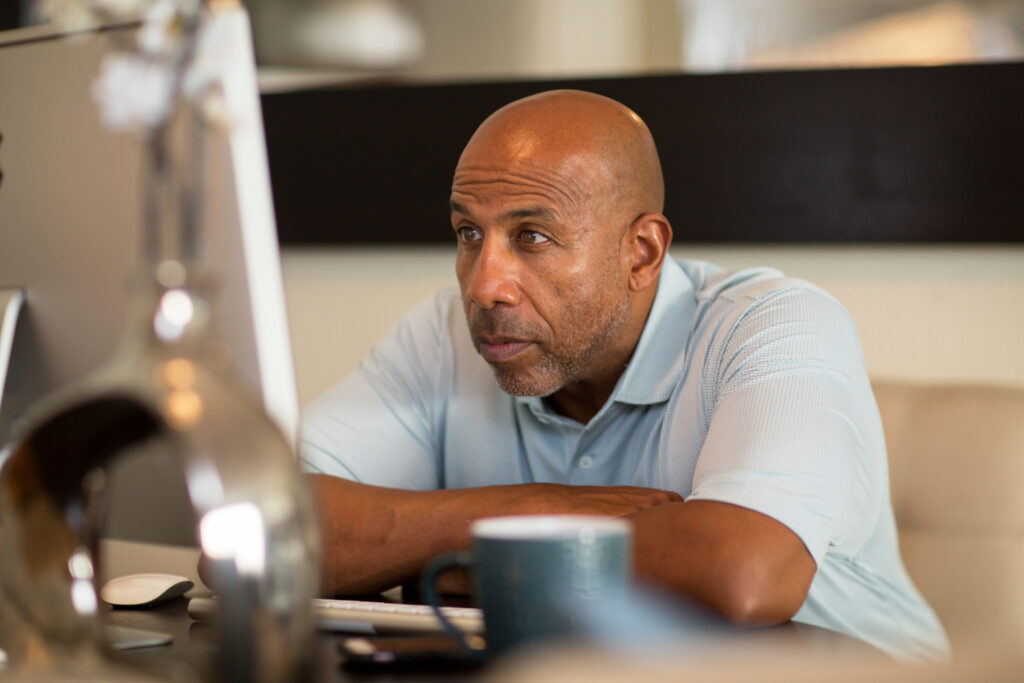They’re the ones who push beyond comfort zones, challenging what most people blindly accept.

You might think you’re open-minded, but are you really willing to question everything you believe—down to the core? Most people stick to familiar thoughts, ideas, and patterns because they offer comfort. But truth-seekers are wired differently. They’re the ones who willingly step into discomfort, not to stir the pot, but to figure out what’s real. For them, truth matters more than approval, and discovery is worth more than certainty. It’s not about being contrarian—it’s about being courageous enough to see the world clearly, even when it’s not flattering.
In a society built on sound bites, assumptions, and safe narratives, these individuals refuse to skim the surface. They dig deeper, even when the answers unsettle them. They challenge groupthink, pause before reacting, and constantly examine their own assumptions.
1. They Question Their Own Biases—Even When It’s Uncomfortable

Most people are unaware of their biases, and even when confronted, they defend them without a second thought. Truth-seekers operate differently, according to Cameron Kerr at Medium.com. They actively look for the blind spots in their thinking and are willing to sit in the discomfort that comes with acknowledging them.
They ask themselves hard questions: Why do I believe this? Where did that idea come from? Am I reacting from fear, pride, or something deeper? They know it’s easy to criticize others’ beliefs, but much harder to face the invisible biases in their own minds. Still, they do the work—because they know truth starts within.
2. They Listen to Opposing Views Without Shutting Down

It takes real strength to hear an opposing viewpoint without immediately feeling threatened or angry. Truth-seekers lean into those moments. They don’t view disagreement as an attack; they see it as a learning opportunity, as mentioned by Katie Joy at The Global Butterfly.
Even when they feel strongly about something, they’re willing to step back and listen—really listen—to where someone else is coming from. They understand that being right isn’t the goal; being informed is. And often, it’s through those uncomfortable conversations that their thinking gets refined, strengthened, or, sometimes, completely redirected.
3. They’re Not Swayed by Popular Opinion

There’s something powerful about standing your ground, even when everyone around you is moving in the opposite direction. Truth-seekers don’t follow trends, echo chambers, or groupthink just to feel included, as stated by writers at Living Strategically. They take the time to evaluate ideas on their own merit—even if it means being the lone voice in the room.
They understand that popularity doesn’t equal truth. Their loyalty is to what’s real, not what’s socially acceptable. And while it can be isolating at times, they find peace in knowing they aren’t compromising their integrity for the sake of fitting in.
4. They Ask Questions No One Else Wants to Ask

Some questions are avoided not because they’re irrelevant, but because they make people uncomfortable. Truth-seekers don’t let that stop them. They have a natural curiosity that refuses to stay silent. Whether it’s in a meeting, classroom, or dinner table discussion, they’re the ones who raise the awkward, inconvenient, or politically incorrect questions.
Not to stir conflict, but because they believe truth needs air to breathe. They’re less concerned with being polite and more interested in being honest—and they trust that the strongest truths will hold up under pressure.
5. They Change Their Mind When New Evidence Appears

In a world where many people cling to their beliefs out of pride, fear, or habit, truth-seekers stand out by being willing to evolve. If they’re presented with solid evidence that contradicts what they previously believed, they don’t double down out of ego.
They absorb the new information, reevaluate their position, and—if necessary—adjust. They understand that changing your mind isn’t a sign of weakness; it’s a sign of growth. They’d rather be honest than be “right,” even if it means rewriting what they thought they knew.
6. They Fact-Check Like Their Life Depends on It

In a culture flooded with misinformation, truth-seekers make it a priority to verify before they believe. They know that flashy headlines, viral videos, and even respected voices can get it wrong. So they dig. They check sources, look for original data, and ask: What’s being left out here? Who benefits from this narrative?
They’re not interested in confirmation bias—they want the full picture. It takes time and effort, but for them, the truth is worth it. They don’t just want to be informed; they want to be accurate.
7. They Accept That They Might Never Have All the Answers

Truth-seekers are humble in the face of life’s complexity. They’re not chasing truth because they expect to one day “figure it all out.” They do it because they respect the process. They’ve made peace with uncertainty and recognize that some mysteries may never be fully solved.
Rather than fearing the unknown, they’re intrigued by it. Their curiosity is endless, and they’re okay with living in the tension between what is known and what isn’t. For them, the journey is just as meaningful as any answer they might find along the way.
8. They Seek Out People Who Challenge Them

It’s tempting to surround yourself with people who validate your views—but truth-seekers intentionally do the opposite. They know that growth doesn’t happen in echo chambers. So they seek out friends, mentors, and communities that stretch them, confront them, and even disagree with them.
They don’t take it personally; they take it as fuel. These relationships sharpen their thinking, expose weak spots in their logic, and remind them that they don’t know everything. It’s not always comfortable—but it’s always worth it.
9. They Don’t Avoid Topics Just Because They’re Sensitive

There are certain subjects—religion, politics, race, gender—that many avoid to keep the peace. Truth-seekers don’t avoid them; they engage with them respectfully and courageously. They believe that every topic, no matter how heated, deserves thoughtful examination.
They’re not looking to offend or provoke—they’re looking to understand. And they know that meaningful conversations can only happen when people are willing to go beyond surface-level small talk and into the messy, meaningful heart of what really matters.
10. They Recognize When Emotions Are Getting in the Way

Emotions are powerful and necessary, but truth-seekers understand they can sometimes distort perception. When they feel overwhelmed, defensive, or reactive, they take a step back. They ask themselves: Am I thinking clearly? What’s driving my reaction right now?
They know that staying anchored in facts, even when emotions run high, is essential to staying honest. This self-awareness doesn’t mean they suppress their feelings—it means they don’t let those feelings lead them blindly.
11. They Don’t Just Believe Experts—They Scrutinize Them

Truth-seekers respect knowledge, but they don’t blindly follow authority. Even when someone has credentials, they still want to know the reasoning behind their claims. What studies support this? Is there a conflict of interest? What do other experts say?
They do their own homework and weigh all sides before deciding what to believe. They’re not anti-expert—they’re pro-transparency. Their goal isn’t to undermine credibility, but to ensure that even respected voices are held to the same standard of truth.
12. They Never Stop Learning

For truth-seekers, learning isn’t a task to check off—it’s a lifestyle. They read, question, explore, and reflect constantly. They know that no matter how much they know, there’s always more to uncover. They embrace curiosity like a muscle that must be exercised regularly.
Whether it’s reading a book, listening to a podcast, or having a deep conversation with someone new, they treat every experience as a classroom. Their hunger for truth doesn’t fade over time—it deepens, and it keeps them growing, evolving, and staying grounded in what’s real.
